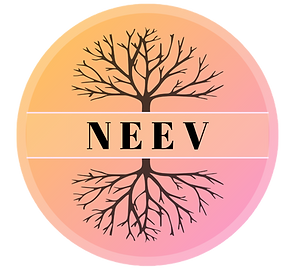Migration of Period Poverty
- Amisha Dusane

- Jan 26, 2021
- 4 min read
So let's just talk about something...
First Period. Definitely something that every menstruator has a significant story attached to it. In my case, I was lucky enough to get my first period when I was at my home. I remember my mom handing me a pad and trying to explain me how to use it and me on the other hand telling her, "Mom yes, I know we were told about all of this in school." Even though, in my case, my school teachers were the first ones to give me my share of "Period Talk" for most menstruating individuals it is their mothers, sometimes friends and, well sometimes, social media. Be it a very open and easy discussion or a very awkward conversation every individual manages to get at least one "Period Talk."

Credits: Photo by Cliff Booth from Pexels
When I go back to the memories of my first period, I can't stop myself from thinking about the fact that I had the luxury of being at home in a supportive, hygienic and stigma-free environment but what about those who are forced to flee from their own homes. Yes, here, I am talking about those who have been or had to forcibly displace themselves from their countries because they were not safe anymore... here we talk about the Refugees.
Around the world today more than 26 million refugees are living in different host communities but these are just the official ones. UNCHR estimates the number to more than 86.5 million. When for a lot of people outside, refugees become the source of fulfilling their own propagandas, for the refugees themselves, migration takes away their rights and makes it difficult for them to even fulfil their basic needs like food, water and shelter and when all of this is not enough they also get subjected to discrimination at various levels. When we look at menstruation it involves so many taboos and stigmas from being impure to exclusion or isolation from daily activities, making it difficult at some places to even get educated or do jobs. In some areas, menstruation also ends up becoming the source of sexual violence and is sometimes also associated with child marriage. And migration/displacement does nothing by magnify these taboos and issues.

Credits: Photo by Engin Akyurt from Pexels
Imagine not knowing about menstruation and then getting your first period in some refugee camp where even the washroom facilities are not clean and having no access to any kind of period product. To add to it you don't have anyone to even tell you about periods or products to use if you're in the back of a truck among a group of unknown people not knowing what is even happening to your body. Imagine that while fleeing your home trying to grab everything you can but not having enough space for a lot of sanitary pads so having to use whatever cloth or tissue you could find in a tent with 10 other people and the nearest communal washroom being far away with a line longer than the distance between your tent and the washroom itself. Imagine going to the washroom at night not knowing if you will be harassed by others or not knowing if the locks on the doors will work or not knowing if there will be water or place to dispose of the tissue you have been using. The impact of all of this is nothing but an association of shame with menstruation, unhygienic period practices, internalisation of these stigmatised beliefs around menstruation making the people who menstruate vulnerable to violence, poverty and dropping out from getting any form of education further reinforcing discrimination. Refugees end up getting exploited in every way we can imagine. Even after years of struggles and making a foreign land their own home, their new homes fails to accept them.
What can we do? To begin with, understand that refugees do not flee their homes by choice.
"No one leaves home unless, home is the mouth of a shark. You only run for the border, When you see the whole city running as well. You have to understand that no one puts their children in a boat, Unless the water is safer than the land. No one chooses refugee camps, or strip searches where your body is left aching or prison, because prison is safer than a city of fire."
Credits: Home by Warsen Shire
If you come across any refugees or migrants, do not discriminate based on anything. As much as possible, through any means educate, create awareness on topics sensitive topics like reproductive health, mental health, abuse, etc., and propagate the importance of education. Educate those who provide shelter to refugees or migrants on how to help them maintain their menstrual health. Volunteer and donate to organisations that work on the field for the welfare of refugees and encourage others to do the same. Encourage universities and schools to provide scholarships. Finally, be empathetic, be kind because, trust me, that is all they are looking for.

Credits: Photo by Julie Ricard on Unsplash
_edited.png)



Comments